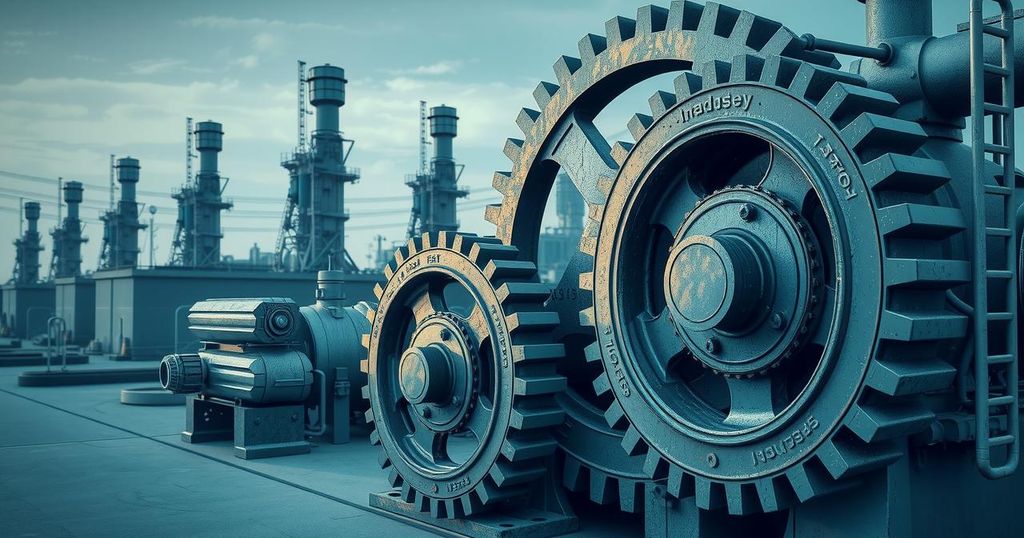The Imperative for U.S. Industrial Dominance Amidst China-EU Relations
The article emphasizes the need for the U.S. to establish industrial dominance amid growing economic ties between China and the EU, outlining the threats posed to American industries. It underscores the importance of supporting U.S. companies for national security, particularly in sectors like aerospace and technology, and warns against the consequences of failing to do so.
The United States must assert its industrial dominance in light of the increasing economic ties between China and the European Union. President Donald Trump emphasized that America’s economic security equates to national security, advocating for job reshoring and robust commerce to propel economic growth. Although the U.S. remains a leader in various sectors such as AI, healthcare, and manufacturing, there are growing threats posed not only by China but also by traditional allies in Europe.
As China aims to expand its influence, it views the EU as an ally to counterbalance American industry. The partnership between China and the EU strengthens as both nations foster deeper ties in critical sectors like automotive manufacturing and technology. In recent years, there has been fierce competition for the EU’s favor, particularly since the EU is keen on reducing its reliance on the United States for national security.
China’s automotive success is notable, especially within the European electric vehicle market, where Chinese exports have outperformed American exports in 2023. Projections indicate that Chinese brands may escalate their market share in Europe significantly over the next decade, despite European Commission tariffs. Additionally, the EU’s ambition to be climate-neutral by 2050 is increasing dependency on China for essential raw materials needed for solar and wind power.
China’s strategic initiatives are evident as they aim to surpass the U.S. in emerging industries, which poses a national security threat. Their “Made in China 2025” plan underscores the intent to dominate advanced manufacturing fields such as AI and clean energy. Notably, China has surpassed the U.S. in patent applications and is heavily investing in semiconductor and green technology production, thereby challenging U.S. innovation.
Furthermore, China’s aerospace manufacturing sector is visualizing expansion into Western markets and intends to increase investment in major European companies such as Airbus. This directly poses a challenge to American companies like Boeing, which are essential for U.S. economic security and technological supremacy. American aerospace firms need to maintain strong ties with the government to help secure the nation’s defense capabilities and market position.
America is currently at a critical juncture, as regulatory challenges have placed significant American enterprises at risk, leading to diminished competitiveness on the global stage. If China continues to dominate critical sectors, including green energy and technological advancements, the U.S. could risk relinquishing its economic future.
Boeing serves as a prime example of the necessity for prioritizing American industry over foreign entities, particularly against those allied with China. Without substantial support, American firms could fall behind, endangering the nation’s economic safety.
It is imperative for Republican legislators to fully support President Trump’s agenda aimed at safeguarding and fortifying American industries to maintain their global leadership. Such actions not only pertain to economic interests but also address broader national security concerns, highlighting the importance of preserving U.S. innovation and positioning in technology.
In summary, the United States must elevate its industrial standing in response to the burgeoning ties between China and the European Union. While America leads in various sectors, external threats necessitate a strong focus on protecting and promoting American industries. To ensure national security and preserve the nation’s economic future, it is crucial to defend domestically produced innovation and technology while countering the rising influence of adversarial forces.
Original Source: www.foxnews.com




Post Comment